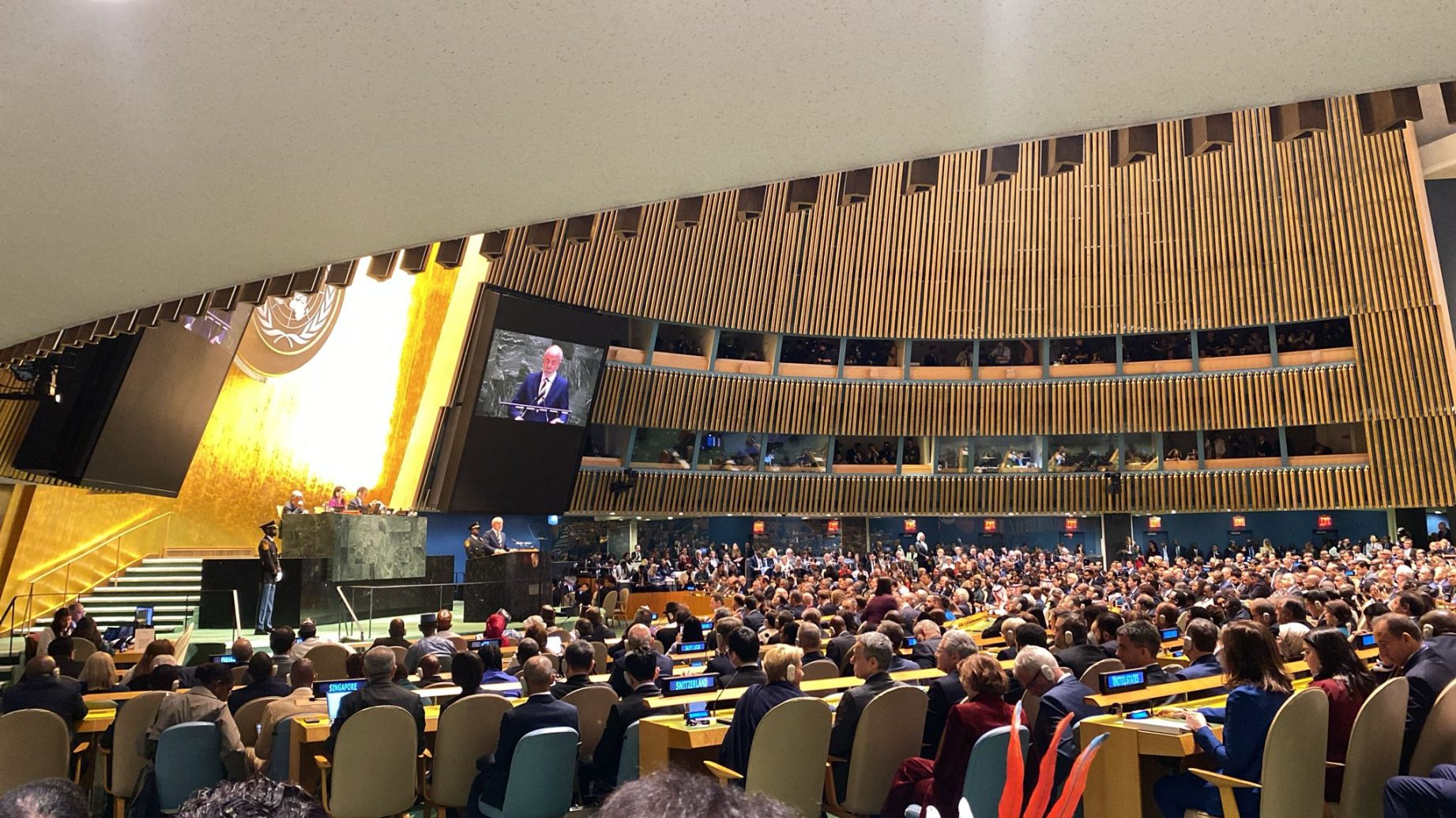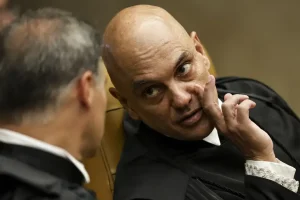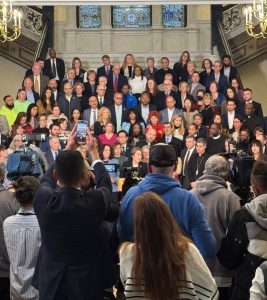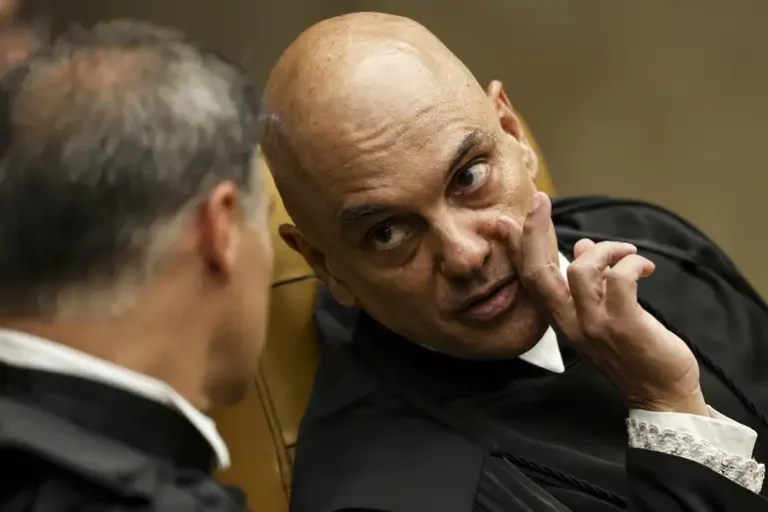O presidente Luiz Inácio Lula da Silva abriu oficialmente o debate da 80ª Assembleia Geral da ONU, em Nova York, mantendo a tradição brasileira de iniciar os discursos. Sua fala foi marcada por um tom firme, críticas à ordem internacional vigente e defesa contundente da soberania nacional, da democracia e do combate às desigualdades globais.
Em seguida, o presidente dos Estados Unidos, Donald Trump, agora em seu segundo mandato, mencionou diretamente Lula em seu discurso — gesto incomum e politicamente significativo no contexto diplomático.
Principais pontos do discurso de Lula
A fala de Lula alertou para o enfraquecimento do multilateralismo, denunciando práticas unilaterais, sanções arbitrárias e interferências externas como ameaças à legitimidade das instituições internacionais, especialmente da ONU. “Ataques à soberania, sanções arbitrárias e intervenções unilaterais são inaceitáveis”, afirmou Lula, advertindo que a autoridade da ONU está em xeque caso o direito internacional continue sendo ignorado.
Entre os temas centrais abordados:
Democracia e independência do Judiciário: sem citar nomes, Lula fez referência à tentativa de golpe no Brasil e à condenação de um ex-presidente, afirmando que isso envia “um recado claro ao mundo” de que a democracia brasileira é resiliente.
Desigualdade global: Lula voltou a defender a criação de uma Aliança Internacional contra a fome, cobrando ações concretas para combater a pobreza.
Regulação digital: criticou a atuação das grandes plataformas digitais e defendeu uma governança global da internet para conter crimes, discursos de ódio e desinformação.
Conflitos armados: condenou o que chamou de “genocídio em Gaza”, reafirmou a neutralidade brasileira na guerra entre Rússia e Ucrânia e declarou que nenhuma solução militar trará paz duradoura.
A mensagem buscou reposicionar o Brasil como um ator independente e influente, com autoridade moral para defender um mundo mais justo e multipolar.
Repercussões e impactos internacionais
O discurso não foi apenas simbólico — provocou reações imediatas no cenário político e diplomático:
1. Reforço da soberania brasileira
Ao criticar sanções e interferências externas, Lula reafirmou a postura do Brasil como nação soberana e com protagonismo próprio, principalmente diante das potências ocidentais.
2. Ganhos políticos internos
A fala fortalece o discurso do governo diante da opinião pública nacional, especialmente entre eleitores que valorizam a defesa da soberania e a resistência a pressões internacionais.
3. Tensões com os EUA
Apesar de não ter citado explicitamente nenhum país, Lula lançou um recado claro às potências que impõem sanções e julgam o funcionamento das instituições brasileiras — especialmente os Estados Unidos. O embate simbólico se intensificaria minutos depois.
Trump responde: menção direta a Lula
Durante seu próprio pronunciamento na Assembleia, Donald Trump surpreendeu ao falar diretamente sobre Lula: “Ele é um cara simpático — tivemos uma excelente química por cerca de 39 segundos”, disse, em tom de brincadeira, tentando suavizar o clima diplomático.
Mas a fala seguiu com críticas:
Trump afirmou que o Brasil só terá sucesso “se caminhar junto com os Estados Unidos”, sugerindo que o país ainda depende de Washington.
Afirmou, com tom paternalista, que “sem nós, eles falham”.
Em seguida, anunciou que pretende se reunir com Lula na próxima semana, sugerindo um canal de diálogo mesmo em meio às divergências.
A referência pública mostra que Lula entrou no radar estratégico da diplomacia americana — e que, mesmo com tensões, o diálogo permanece possível.
O que esperar daqui pra frente?
O discurso de Lula foi bem recebido entre países do Sul Global e movimentos progressistas, mas gerou cautela em nações desenvolvidas, que observam com atenção o tom mais assertivo do Brasil. Já a menção de Trump demonstra que, embora as diferenças existam, há espaço para negociação direta e disputas de influência. O discurso de Lula na ONU não foi apenas uma formalidade. Foi um posicionamento claro sobre o papel do Brasil no mundo — um país que defende sua soberania, denuncia abusos da ordem internacional e busca protagonismo em temas como democracia, paz, regulação digital e combate à pobreza. A resposta de Trump reforça que o embate é mais que retórico: é estratégico. E os próximos encontros entre os dois líderes devem mostrar até que ponto esse diálogo poderá avançar — ou se o confronto geopolítico só começou.
(english)
Lula’s Speech at the UN: A Defiant Call for Sovereignty Echoes on the Global Stage — and Trump Responds
On Tuesday morning (September 23, 2025), Brazilian President Luiz Inácio Lula da Silva delivered the opening speech of the 80th United Nations General Assembly in New York, continuing Brazil’s long-standing tradition of initiating the debate. His address was bold, critical, and strategically charged — touching on international law, sovereignty, social justice, and global inequality. And later that day, Donald Trump, now back as President of the United States, directly mentioned Lula in his own speech — a rare and telling move in diplomatic circles.
Key Points from Lula’s Speech
Lula’s address focused on the erosion of multilateral institutions, and the risks posed by unilateral sanctions and foreign interference in sovereign nations.
“Attacks on sovereignty, arbitrary sanctions, and unilateral interventions are unacceptable,” Lula stated firmly, warning that the UN’s credibility is at risk if international law continues to be disregarded.
Other highlights from Lula’s speech included:
Democracy and judicial independence: Without naming names, Lula referenced Brazil’s recent political crisis and the conviction of a former president for attempting a coup. He said the ruling sent “a clear message to the world” that democracy in Brazil is resilient.
Global inequality: Lula called for renewed global efforts to end hunger and poverty, and promoted the creation of an International Alliance Against Hunger.
Digital regulation: He warned of the dangers of unregulated digital platforms, misinformation, and hate speech, calling for international action to hold tech companies accountable.
War and peace: Lula condemned what he called the “genocide in Gaza,” reiterated Brazil’s stance of neutrality in the Russia-Ukraine war, and insisted no military solution will bring lasting peace.
Lula’s message positioned Brazil as a global voice of moderation, sovereignty, and multilateralism, even as he sent thinly veiled criticism toward powers like the United States and Israel.
Impact and International Repercussions
Lula’s speech was more than symbolic — it sparked discussion across political and diplomatic arenas.
1. Reasserting Brazil’s Independence
By denouncing foreign sanctions and interference, Lula reaffirmed Brazil’s commitment to charting its own path on the world stage. His speech was widely seen as an attempt to reclaim Brazil’s leadership role among developing nations and in the Global South.
2. Political Leverage at Home
Domestically, Lula’s strong stance is likely to energize his supporters, especially those concerned with foreign pressure on Brazil’s institutions, economy, and judiciary. His remarks will also be used to reinforce the image of a sovereign, anti-colonial Brazil.
3. Diplomatic Tensions with the US
While no country was mentioned by name, Lula’s tone left little doubt. His criticism of “arbitrary sanctions” and “external meddling” seemed aimed, at least in part, at Washington. That rhetorical tension set the stage for a surprising moment later in the day.
Trump Responds: A Curious Mention
In his own speech before the UN General Assembly, Donald Trump, now in his second term, unexpectedly referred to Lula:
“He’s a nice guy — we had excellent chemistry for about 39 seconds,” Trump joked, in an apparent attempt to lighten the diplomatic mood.
Despite the humor, Trump went on to criticize Brazil’s current path, saying the country can only “succeed if it works closely with the United States,” and warned that “without us, they fall.”
The U.S. president also announced plans to meet Lula next week, opening the door to potential high-level talks amid growing tension between the two administrations.
What Comes Next?
While Lula’s speech was applauded by many Global South leaders and progressives worldwide, it also raised concerns among Western allies about Brazil’s future alignment. His ambiguous approach — strong in tone but vague in targeting — keeps diplomatic channels open while projecting strength.
Trump’s public mention of Lula, meanwhile, signals that Brazil is on Washington’s radar — and that diplomatic engagement may continue, even if relations remain tense. Lula’s speech was not just another opening address. It was a carefully crafted assertion of national dignity, global solidarity, and strategic resistance to hegemony — with strong implications for Brazil’s role in the international order.
In responding, Trump acknowledged both the tension and the need for dialogue. Whether that dialogue leads to cooperation or confrontation remains to be seen — but Lula has clearly drawn his line.















